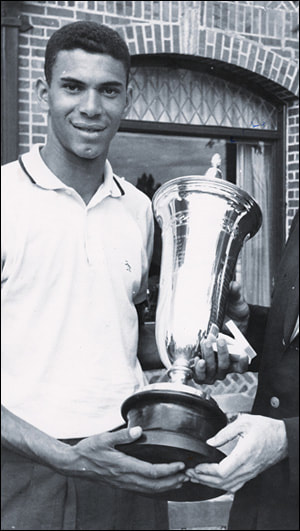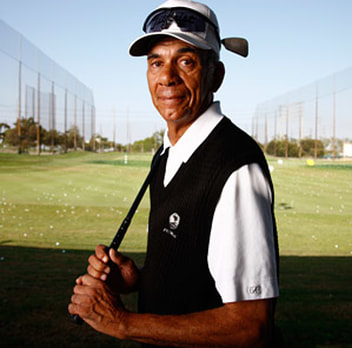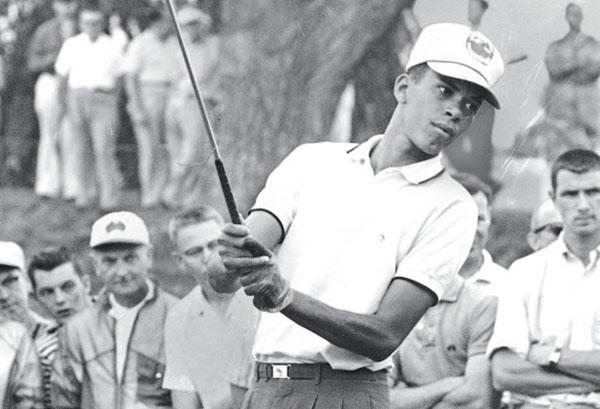|
In 1933, Eastmoreland golf course hosted the USGA Public Links Championship. That year a handful of Eastmoreland players vied for the championship, though came up short in the final matches. It would be 3 years before Bill Wright would be born, and another 23 before he crowned Champion in 1959 at Wellshire G.C. in Denver Colorado. Through the years many other Eastmoreland players have played what's affectionately called the Publinx, from Benny Hughes in the late 1930's to Jack Schneider as recently as 2000 at Great Blue at Heron Lakes. However we have only one champion in Bill Wright.... and though I say "we" he was in fact an adopted member. He should have been representing Franklin Park Golf Course in Seattle but because of the segregated clubs, he came to Eastmoreland where he was welcome to establish a handicap. I first learned about Bill's story from Portland's own PGA professional Vincent Johnson, winner of the 2010 Long Beach Open and now assistant director of the Portland Parks golf program. Vincent has had an opportunity to speak with Bill during his early years as a PGA professional. From these beginnings, I started to research and came upon a terrific article by Golf Magazine titled "Wright & Wronged" published on October 9, 2009. That very same day he was honored by the USGA, First Tee and Franklin Park in Seattle as "Bill Wright Day" in recognition of the 50th anniversary of his historic win. For Bill, who at the age of 73 at the time still had the buttery smooth swing of a that could knock drives 275+, competing at golf was a matter of individual accomplishment. While he is very proud of being black american and a champion, his real focus was just getting an opportunity to play and showing he could compete and win. Given the racial prejudice of America getting into the roster required Bill Wright to do far more than just play champion level golf. He had to scale the walls of racial prejudice. He had a good mentor too, as Charlie Swifford, the PGA tour player who played alongside Joe Lewis was a close family friend, staying with the Wright's when he played tournaments in Seattle. It was Joe and Charlie who fought the PGA's "caucasians only" clause installed in 194. By 1959 that overt discrimination would would be dealt a knock-out blow by none other than Joe Lewis. Bill Wright had to face the more challenging barrier of passive discrimination. While the USGA did not have overt discrimination policies, the clubs which governed local membership were often segregated in many cities, including his home course of Franklin Park in Seattle The ultimate measure of a player is the flight of your ball |
|



 RSS Feed
RSS Feed